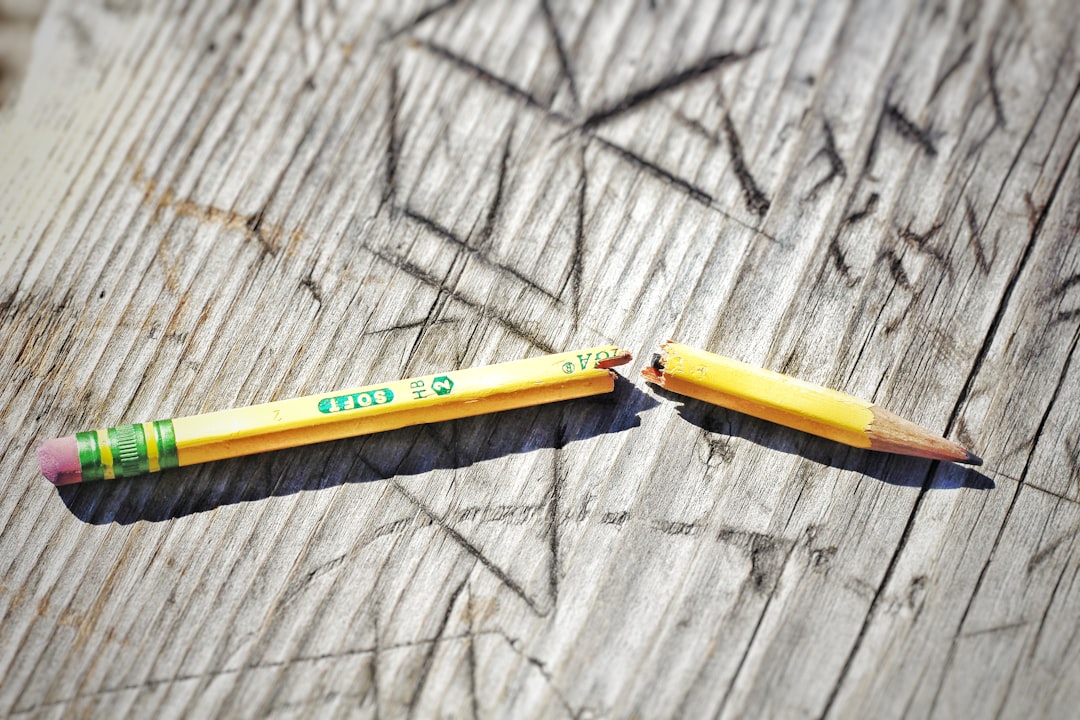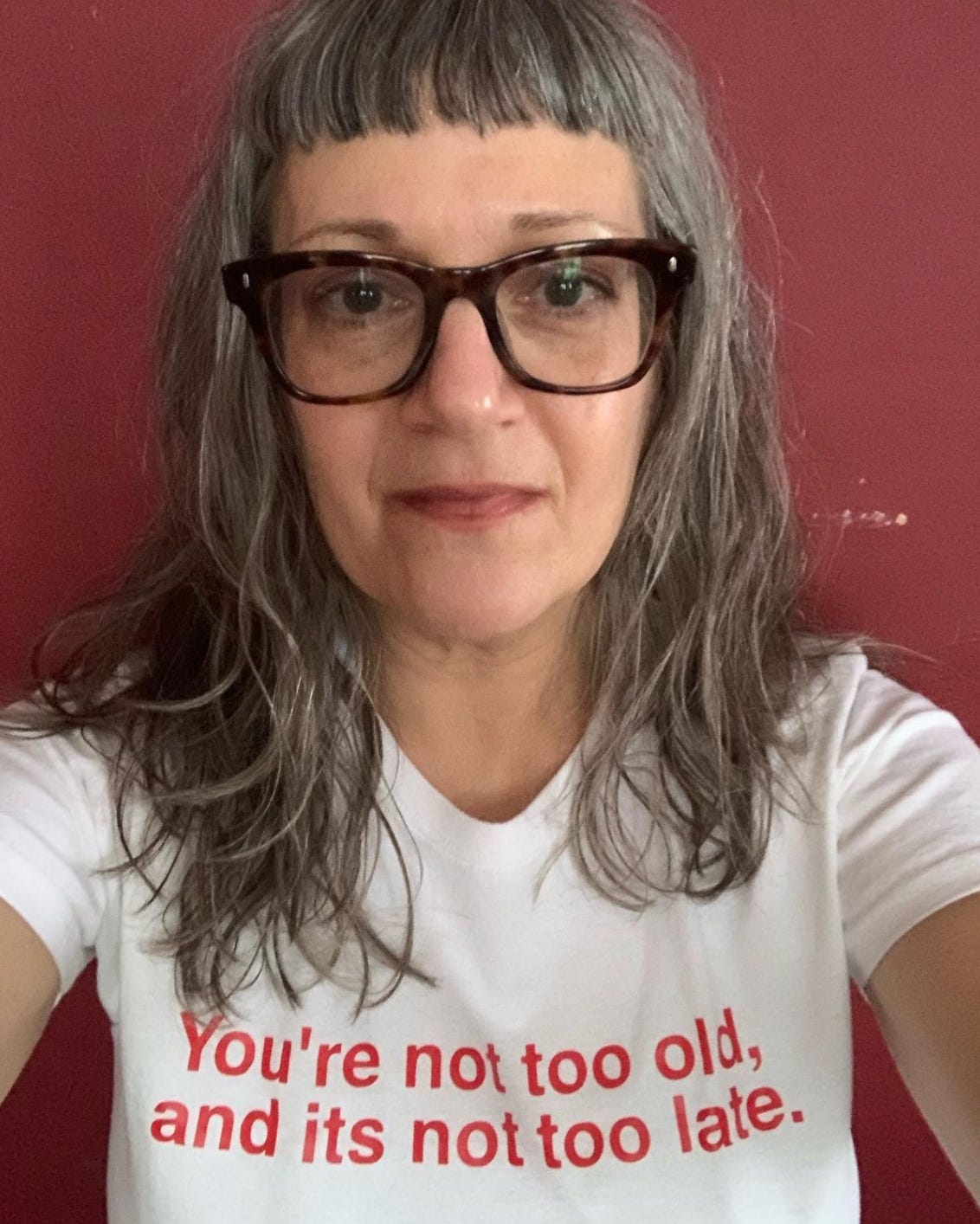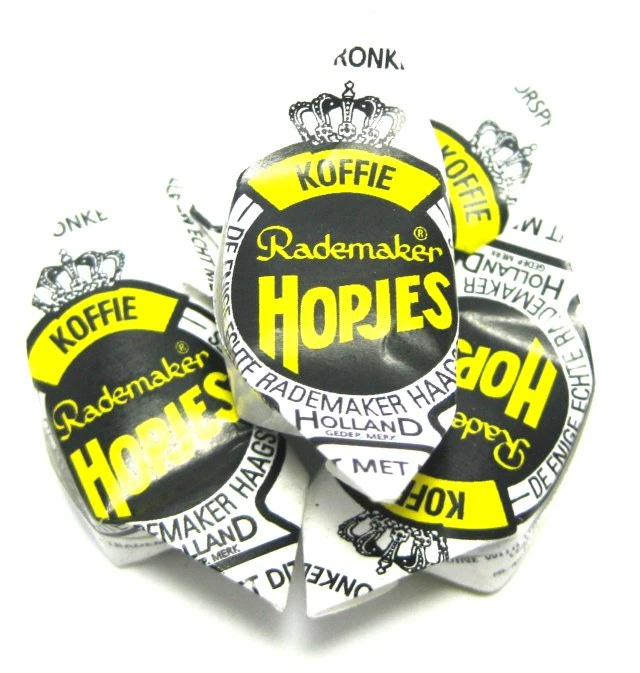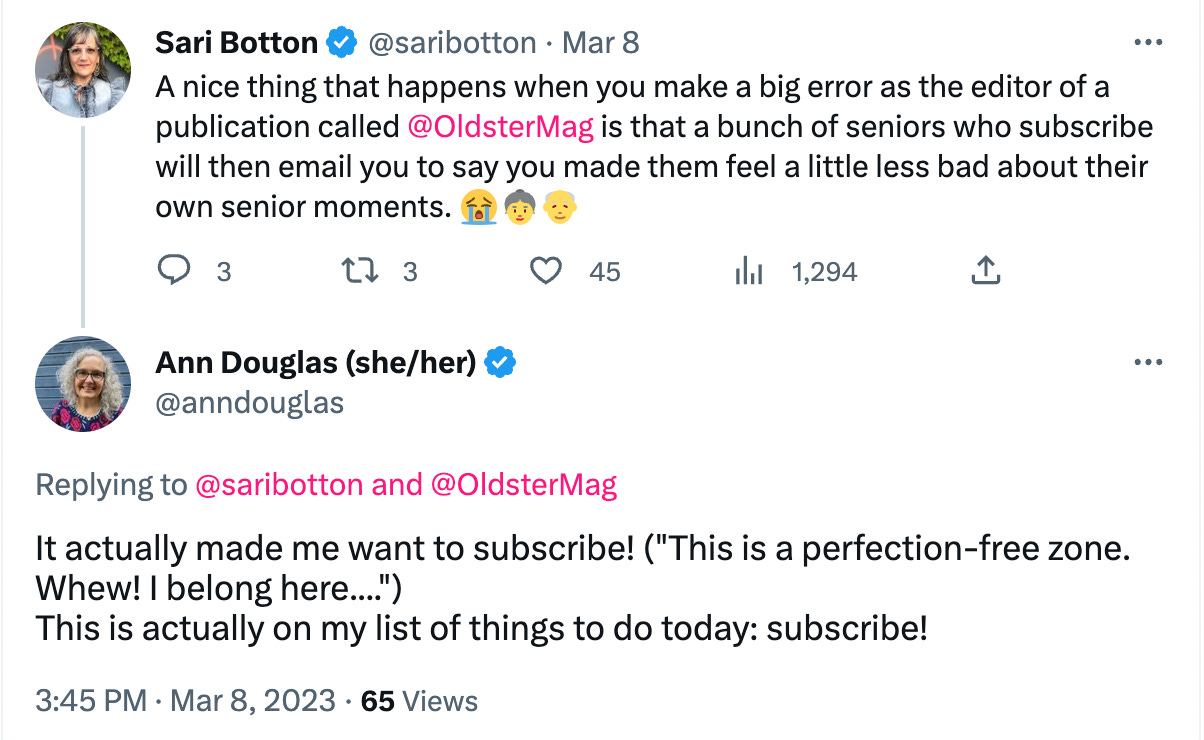"That's Why Pencils Have Erasers"
Fortunately for me, imperfection is having a moment. (Typos likely ahead.)

Recent events have brought to mind something that Faye Millman—the bookkeeper at my garmento grandfather’s sportswear company—used to say when I made errors in my job there.
I worked in his 7th Avenue office during some breaks from high school and college, and got very little instruction for the tasks I performed. Despite being largely untrained, on the occasions I’d mess up, I’d curse myself. Hearing this, Faye would hand me one of the Hopjes brand coffee-flavored candies she kept in a desk drawer and say, “That’s why pencils have erasers, dear. Don’t be so hard on yourself.”
Decades later I’m still cursing myself when I mess up, and because I’m always juggling too many things at once in this hustle economy, lately I’m making even more errors than usual. Unfortunately I rarely remember Faye’s words until after I’ve freaked out on myself; fortunately, imperfection is having a bit of a moment, and I’m learning from it.
✏️✏️✏️
Last Wednesday, over at Oldster Magazine, I was excited to post a new Questionnaire by comic book author Jonathan Baylis. I woke up, sat down to my computer, added the photos Jonathan had sent overnight…and then proceeded to post it with the wrong name in the headline: Jason Baylis.
Despite being largely untrained, on the occasions I’d mess up, I’d curse myself. Hearing this, Faye would hand me one of the Hopjes brand coffee-flavored candies she kept in her desk and say, “That’s why pencils have erasers, dear. Don’t be so hard on yourself.”
I recognized the error minutes after the thing had gone out to the magazine’s 14,500 subscribers, and began to berate myself out loud. “I’m such an idiot!” I shouted. “I can’t believe I just did that!” My husband was concerned. “What just happened?” he asked. “Is everything okay?” He tried to calm me down. I could barely form the words to explain what I’d done, and instead busied myself with damage control—fixing the error online, emailing all my subscribers with a correction, emailing them yet again, via cross-posting.
For a while afterward, I struggled to cut myself some slack. Then I started to receive emails from subscribers assuring me it was fine. Not only that, I’d helped them feel a little less bad about their own errors and “senior moments.” After I tweeted about those emails I got the nicest response from someone who felt inspired to subscribe to Oldster only after I admitted my mistake:
This was hardly the first time I’ve had to correct errors in one of my three newsletters. Actually, I don’t think I’ve ever sent one out that I didn’t later correct or update in some way. You might recall that in mid-January, after I posted about Annie Ernaux, I revised that piece significantly, then sent out an email letting everyone know I’d done so. But not before I beat myself up about sending out a newsletter that contained typos, and was missing a few important thoughts I’d originally meant to include.
My friend, writer, New Yorker cartoonist, and storyteller Carolita Johnson dropped me a line after that one that helped me feel better, and made me begin to examine my relationship to perfectionism.
Carolita wrote:
I don't know what you changed, but it looked fine to me, with a typo or two. I have been reading a lot of Silvia Federici with typos galore, and loosey-goosey references, and mistaken use of words, but I think, as I thought about the new, looser line Lauren Weinstein began using when she began having babies and not enough childcare options, that we women have no time to make everything perfect. Maybe if we had one of those adoring devoted enabler women we see in the movies who help their genius husbands or object of worship to do everything perfectly, we could kick ourselves (or them) for imperfect proofreading or writing.
I am more and more assuming typos are evidence of us not having time to polish things, and that means we're busy and doing important things outside of the view of the public.
Not having time to polish things…busy doing important things outside of the view of the public… Holy shit. Yes! For not the first time, Carolita opened my mind. I’ve been thinking about this ever since—although I clearly haven’t gotten fully on board, or I wouldn’t have berated myself the way I did after I mixed up “Jonathan” and “Jason.”
✏️✏️✏️
On Friday afternoon I took a walk with my smart, funny friend Stephanie Ellis (who happens to be a wonderful acupuncturist if you’re in the mid-Hudson Valley and in need), and we got onto the topic of perfectionism, something we both struggle with. She brought up White Supremacy Culture, a website she’s been paying attention to, which has been leading her to stop being critical when people make grammatical errors on social media—like forgetting possessive apostrophes, or erroneously inserting them when pluralizing nouns. I can see now how being persnickety about grammar and punctuation rules that were formulated by white colonizers and oppressors—with little regard for other perfectly valid languages and dialects, with their own rules and patterns—is an expression of white supremacy.
Unfortunately I rarely remember Faye’s words until after I’ve freaked out on myself; fortunately, imperfection is having a bit of a moment, and I’m learning from it.
Our conversation reminded me that despite being an editor, I was trying to become less of a grammar snob in both my work and my life—less of the kind of person whose 2003 dating profile stipulated that anyone who pronounced “nuclear” as NU-cu-lar was automatically disqualified. Less of the kind of person who posted in the early days of Facebook that if you want to hang with me, you have to be well versed in the differences between there, their, and they’re, as well as your and you’re. (Ugh, how superior I thought I was.) And more of the kind of person who has been trying to get older friends and family to stop insisting that using they and them as singular pronouns for those who prefer them constitutes some kind of grammatical travesty.
This brought to mind the snooty Instagram DMs and emails I received after I posted this photo of me wearing a tee shirt I’d ordered from @_ilysmih_ on Instagram:

Initially I hadn’t noticed there was a grammatical error in the shirt’s text: its should be it’s. A number of superior scolds wasted no time bringing it to my attention. My knee-jerk reaction was to DM the maker and ask for a correction. He responded: “It’s a bold move to think it makes sense to ask an artist to change their art.” That gave me pause. I wrote back to the scolds, defending the maker. One of them replied that she has zero tolerance for such “stupidity” and notified me she was unfollowing me, stat. Well, good riddance, lady!
I was also reminded of “Against Copyediting: Is It Time to Abolish the Other Department of Corrections?” a recent thought-provoking (and Twitter discourse triggering) LitHub essay by Helen Betya Rubinstein, in which she likens aspects of copyediting to white supremacist gate-keeping. She writes:
It’s clear that copyediting as it’s typically practiced is a white supremacist project, that is, not only for the particular linguistic forms it favors and upholds, which belong to the cultures of whiteness and power, but for how it excludes or erases the voices and styles of those who don’t or won’t perform this culture. Beginning with an elementary school teacher’s red pen, and continuing with agents, publishers, and university faculty who on principle turn away work that arrives on their desk in unconventionally grammatical or imperfectly punctuated form, voices that don’t mimic dominance are muffled when they get to the page and also before they get there—as schools, publishers, and their henchmen entrench the idea that those writing outside convention are not writing “well,” and therefore ought not set their voices to paper at all.
✏️✏️✏️
Speaking of problems with copyediting, because of a major snafu with an over-ambitious copyeditor—which led to 11th hour speed-proof-reading by my publisher’s 92-year-old mother so we wouldn’t miss my pub date—my book, And You May Find Yourself…Confessions of a Late-Blooming Gen-X Weirdo, contains at least nine typos. Every time I return to it, I seem to spot another. Since the book was published last June, these imperfections in my book have driven me up the wall. I’ve been so embarrassed and ashamed of them.
I immediately asked my publisher if we could correct the errors, especially since the publishing house does print-on-demand. She said we’d need to wait at least four months for some reason, and then we could revisit it. The book has now been out nine months, and I feel less of an urgency to get out my red pen and fix the thing. I don’t know that I’ve fully made peace with the typos, but I’ve had too much other work on my plate since then to stress too much over them. I’ve let go a little.
✏️✏️✏️
And now I’m inclined to let go a little more with regard to typos and errors more generally, in all my work. When I slip and beat myself up for making mistakes, I’ll try not to exacerbate the problem by beating myself up for beating myself up.
I hope this burgeoning trend toward accepting so-called imperfection, and examining just what perfection means anyway won’t last for only a moment, but instead become standard. By the by, I fully expect to adjust this piece in one way or another on the web version after I email this out to you all. It just seems to be how I do, and I’m working toward being okay with that.
PS People have been very kind, asking how I’ve been doing, depression-wise. I’m happy to report that I’m doing a bit better. I think acupuncture is helping. Also, one of the two situations I’ve been cagey about (I should probably still keep it to myself) got resolved, and so there is now less external stuff weighing on me. Whew.
In other news…speaking of Carolita Johnson…
The Woodstock Bookfest is back, March 30th to April 2nd in Woodstock, NY. If you attend, don’t miss the personal essay panel on April 1st, featuring Alexander Chee, Gary Shteyngart, and Carolita Johnson, moderated by me, Sari Botton. I’ll also be a judge at the Bookfest’s story slam on Thursday, March 30th. Get your tickets!




It's worth pointing out that these perfectionist standards of fact checking and copy editing are remnants of an era when anything that was published went through a whole editorial process involving many sets of eyes. No one writer has ever been expected to be perfect -- a whole industry and apparatus was created to control for human error! Now that access to publishing platforms has been so radically leveled out, that apparatus just doesn't exist any more, save for in a few legacy outlets.
What an honor to be quoted! I hope Silvia Federici won’t mind 😄 but seriously, she’s got her hands full with lecturing, research, and taking care of a fragile, elderly husband in a hard world (lots of reproductive work, as she’d say) so I forgive her just about anything, including taking exception with my pointing out a few typos. Peace!